We are deeply saddened by the passing of dramaturge and activist Borka Pavićević, who was a recipient of the ECF Princess Margriet Award in 2010.
Read More2019 ECF Princess Margriet Award for Culture Press Material
All available material about the laureates of the 2019 Award. Press releases, image material, and more.
Read MoreFEATURED PEOPLE: Marika Schmiedt - Highlighting racism against Roma communities
ECF Princess MArgriet Award for Culture Shortlist: Learn more about Marika Schmiedt.
Read MoreFEATURED PEOPLE: KuratoriskAktion - Confronting Colonialism
ECF Princess Margriet Award for Culture 2018 Shortlist: Meet Kuratorisk Aktion
Read MoreFEATURED PEOPLE: Kaos GL - Championing gay rights in Turkey
ECF Princess MArgriet Award for Culture 2018 Shortlist: Meet Kaos GL
Read MoreFEATURED PEOPLE: Powszechny Theatre - Theatre that gets in the way
ECF Princess Margriet Award for Culture 2018 Shortlist: Meet Powszechny Theatre
Read MoreMedia coverage: 2018 ECF Princess Margriet Award for Culture
On 16 May 2018, the European Cultural Foundation celebrated a decade of change through culture. The laureates of the 2018 award are cultural centre Borderland (PL) and multidisciplinary research agency Forensic Architecture (UK).
The Award ceremony took place at the Stadsschouwburg Amsterdam, and was widely covered by the international media. You can have a glimpse of the ceremony and some behind the scenes moments on our Instagram and Twitter.
Images are available for download from our Flickr account. All photos by Xander Remkes.
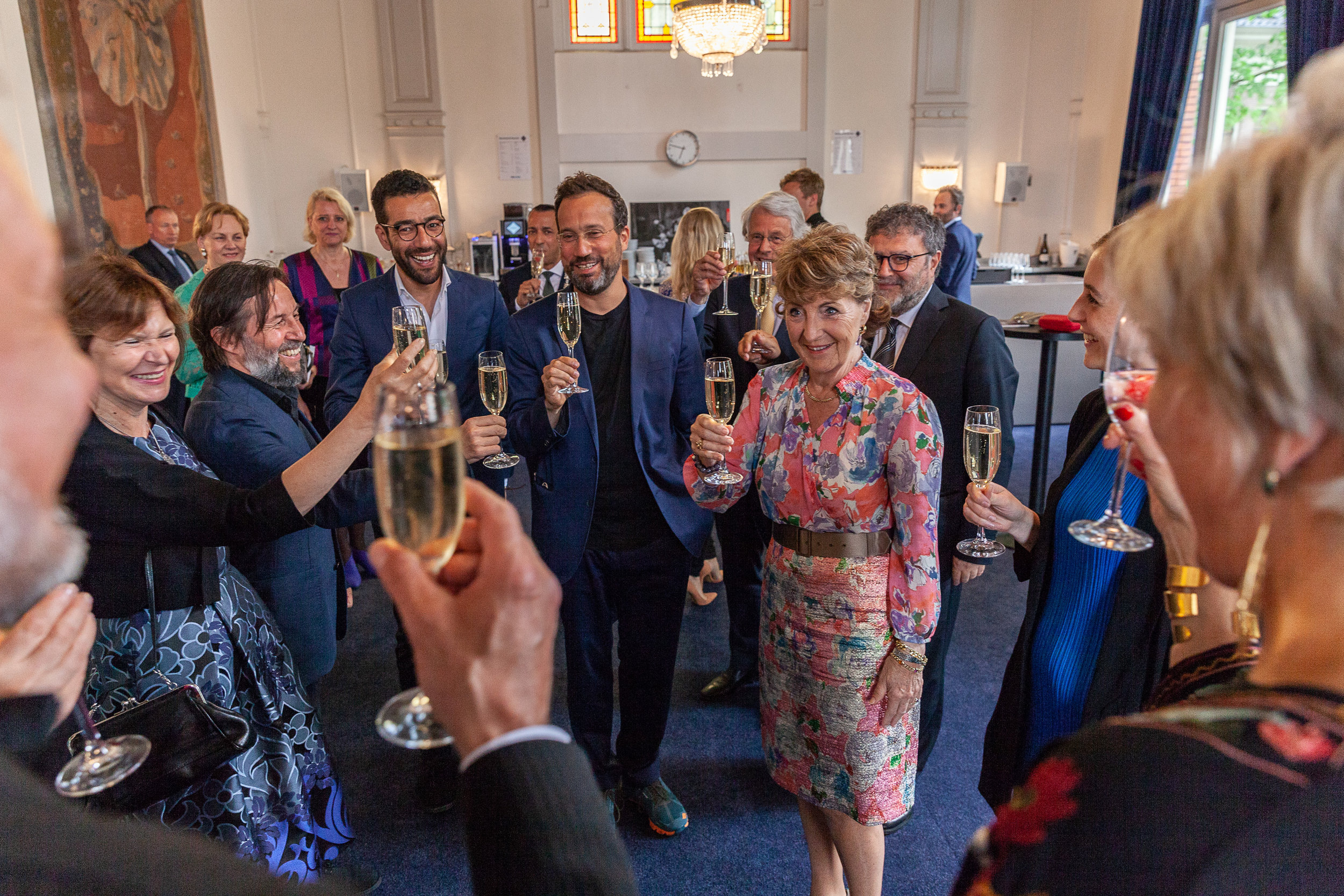
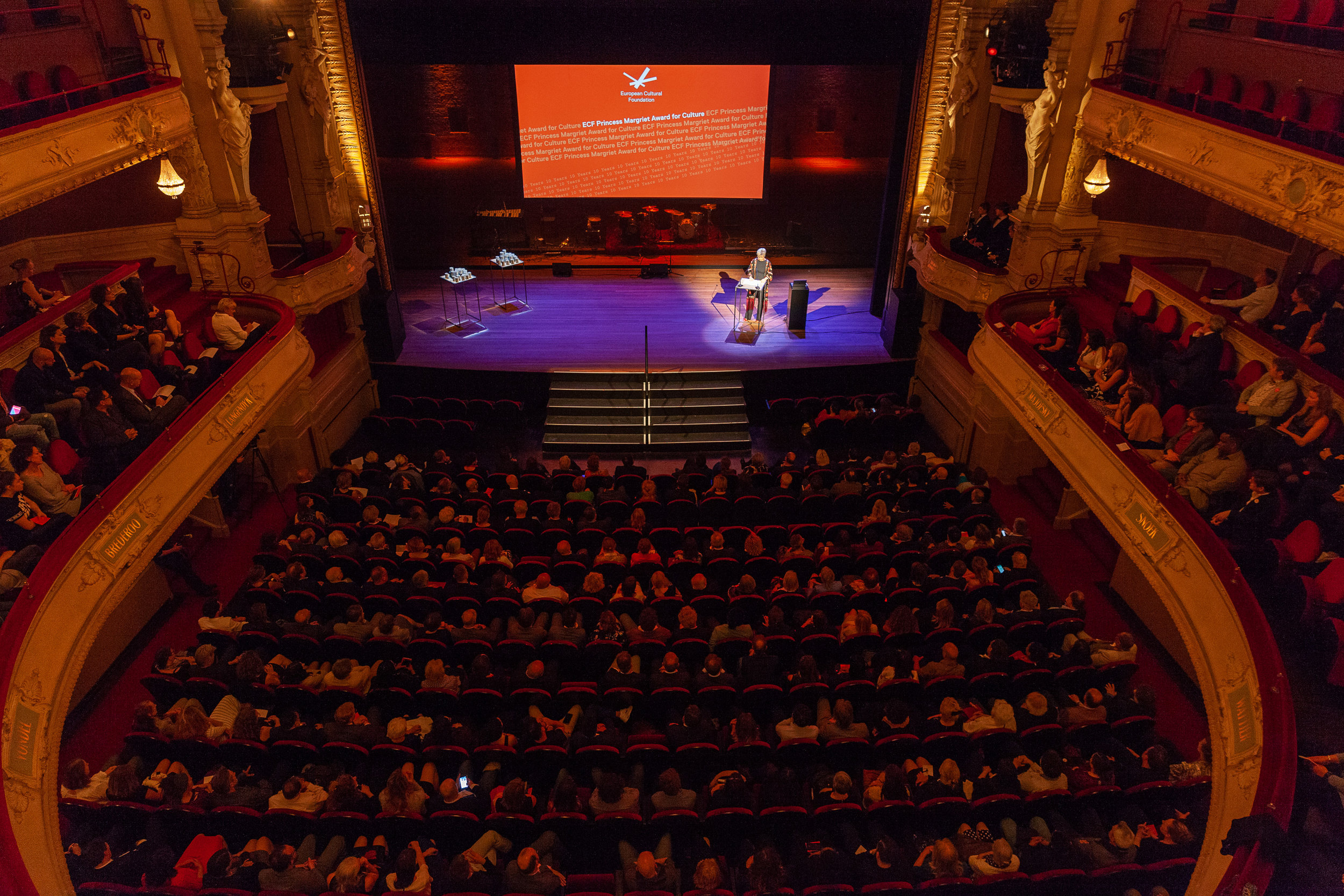
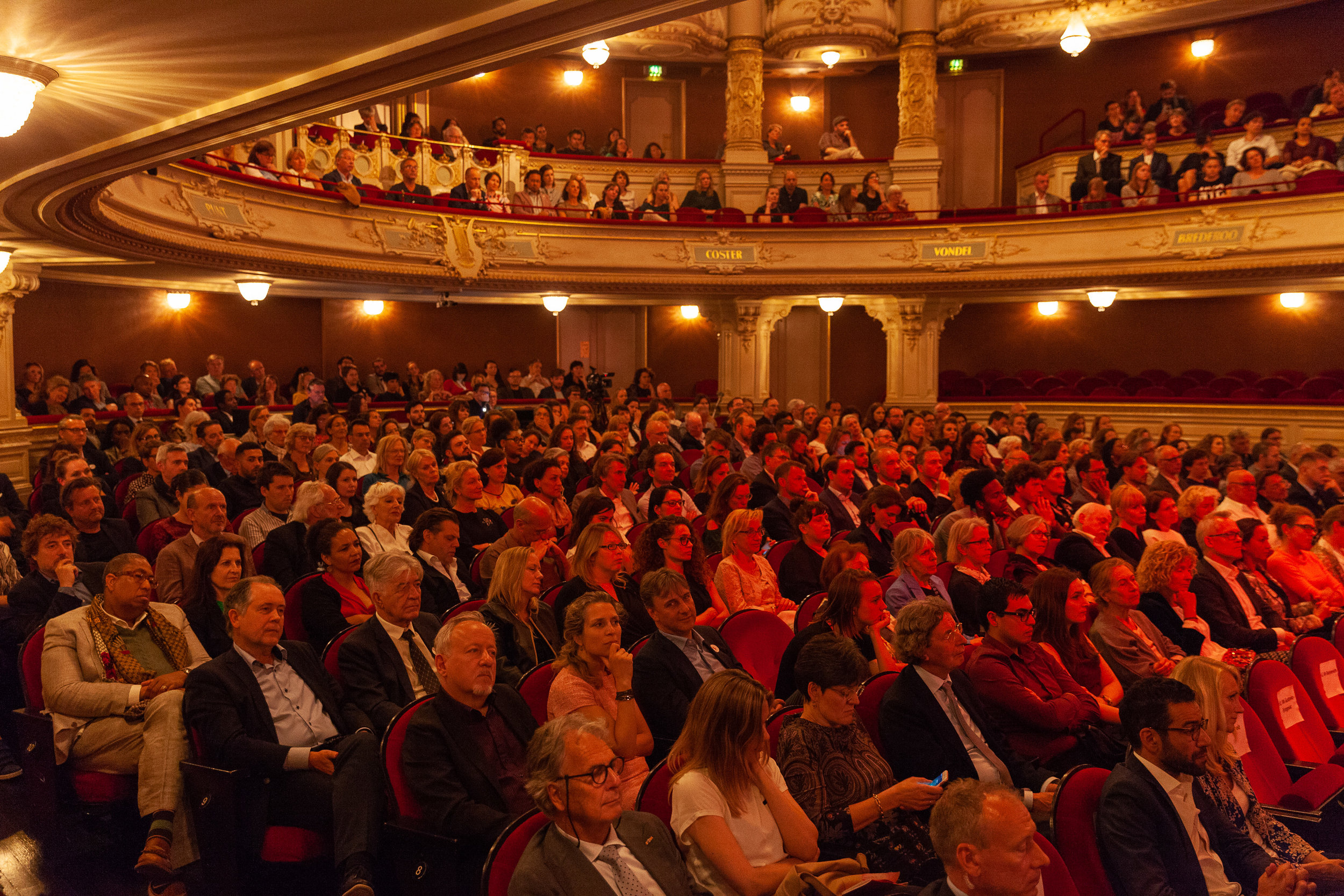
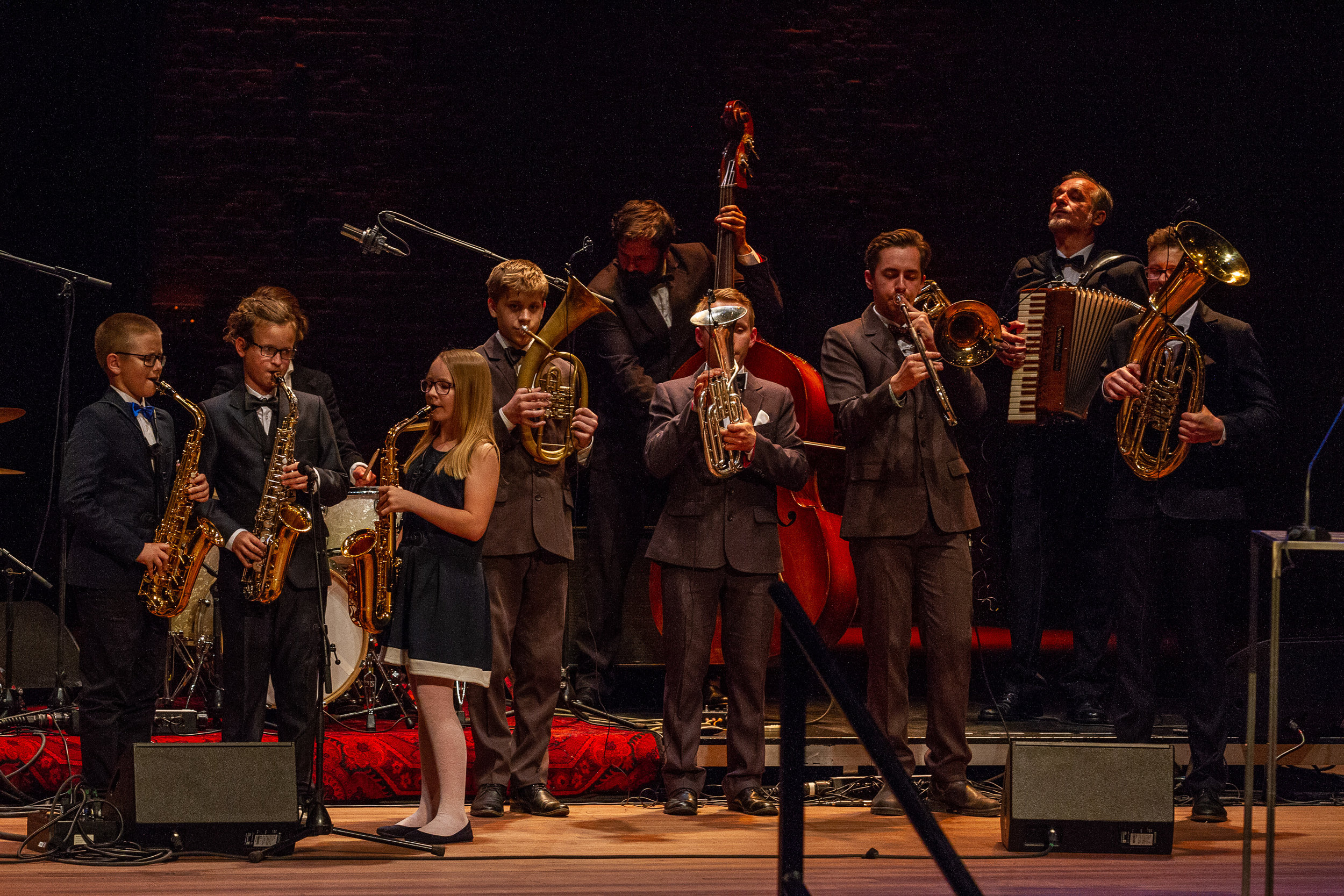

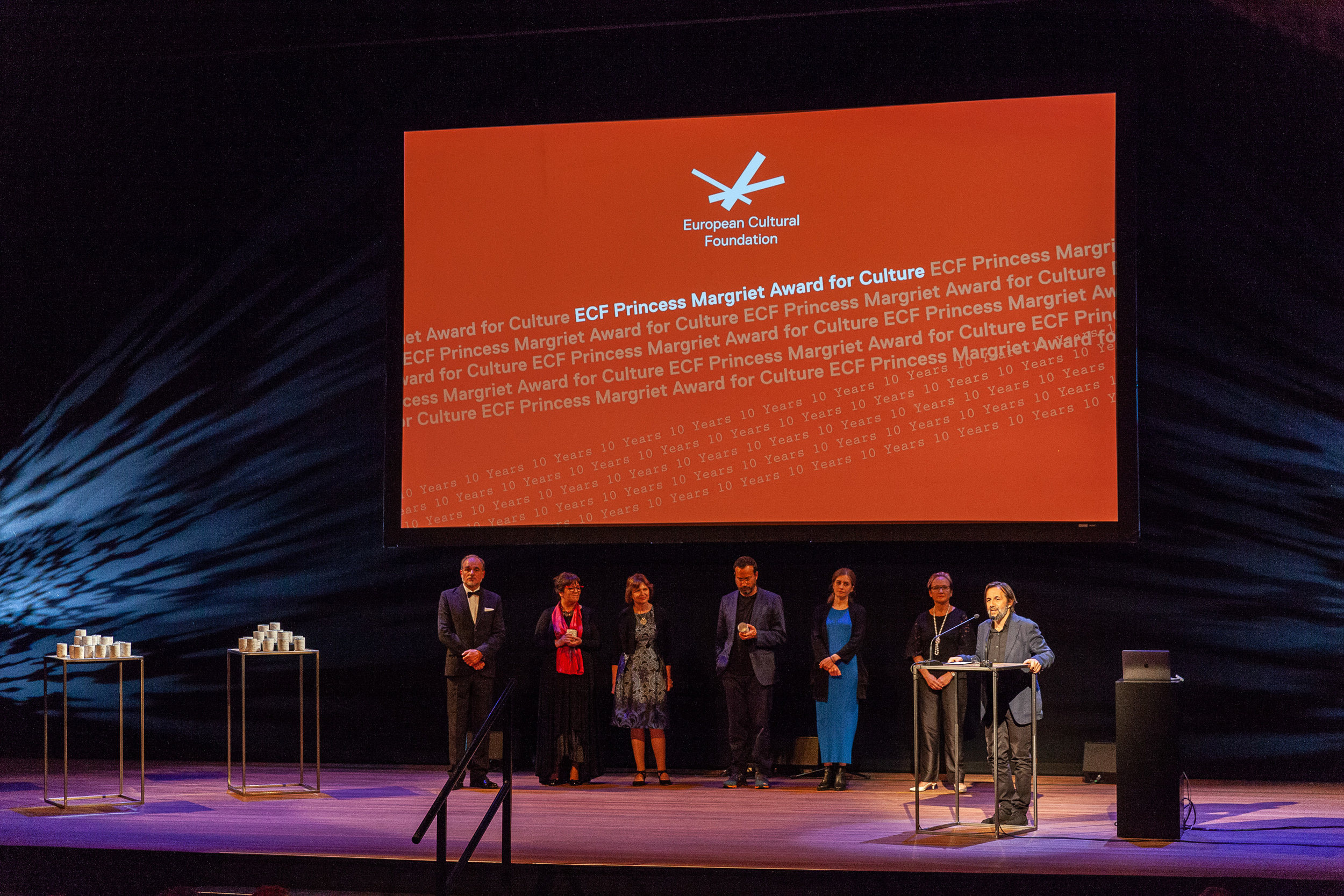

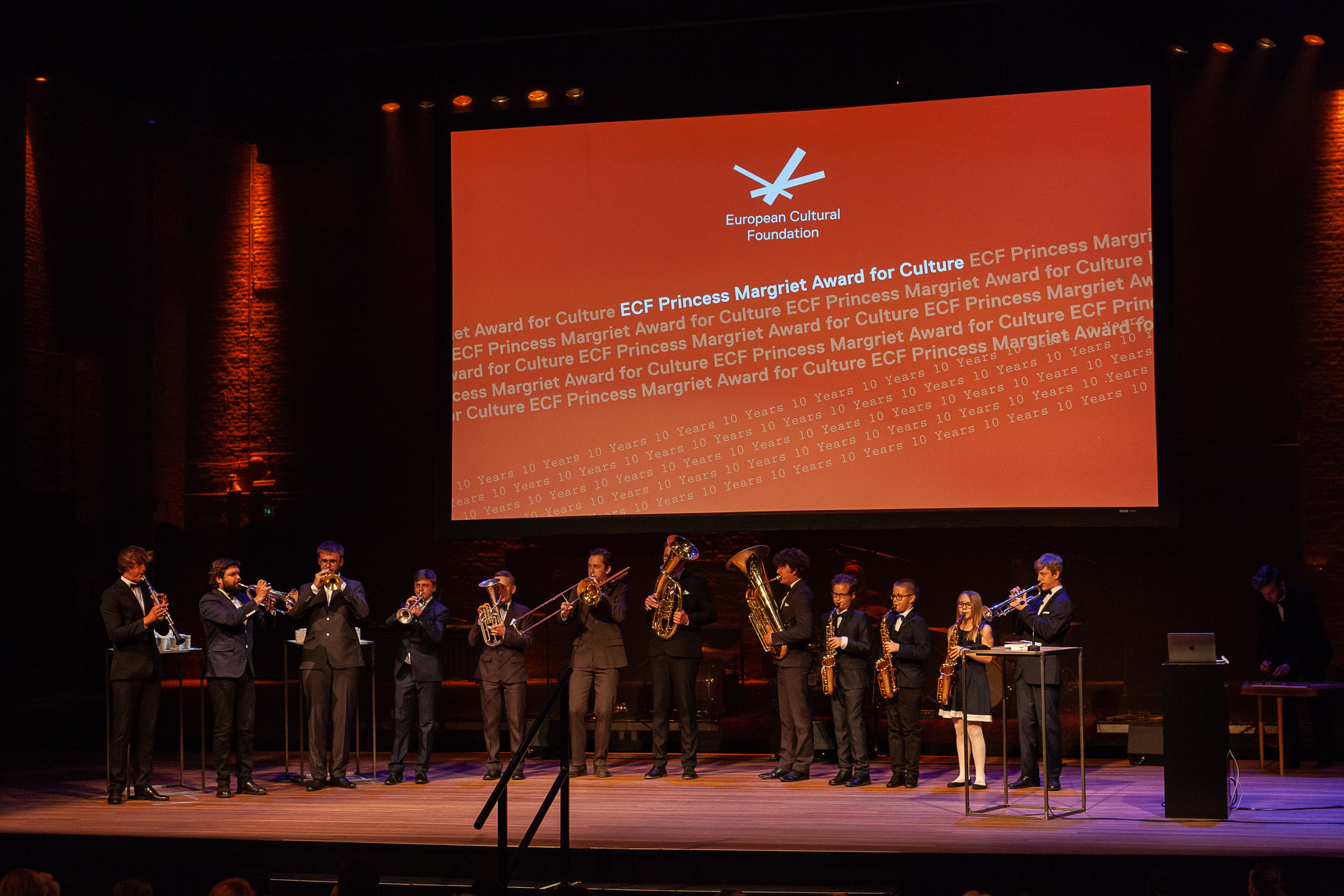
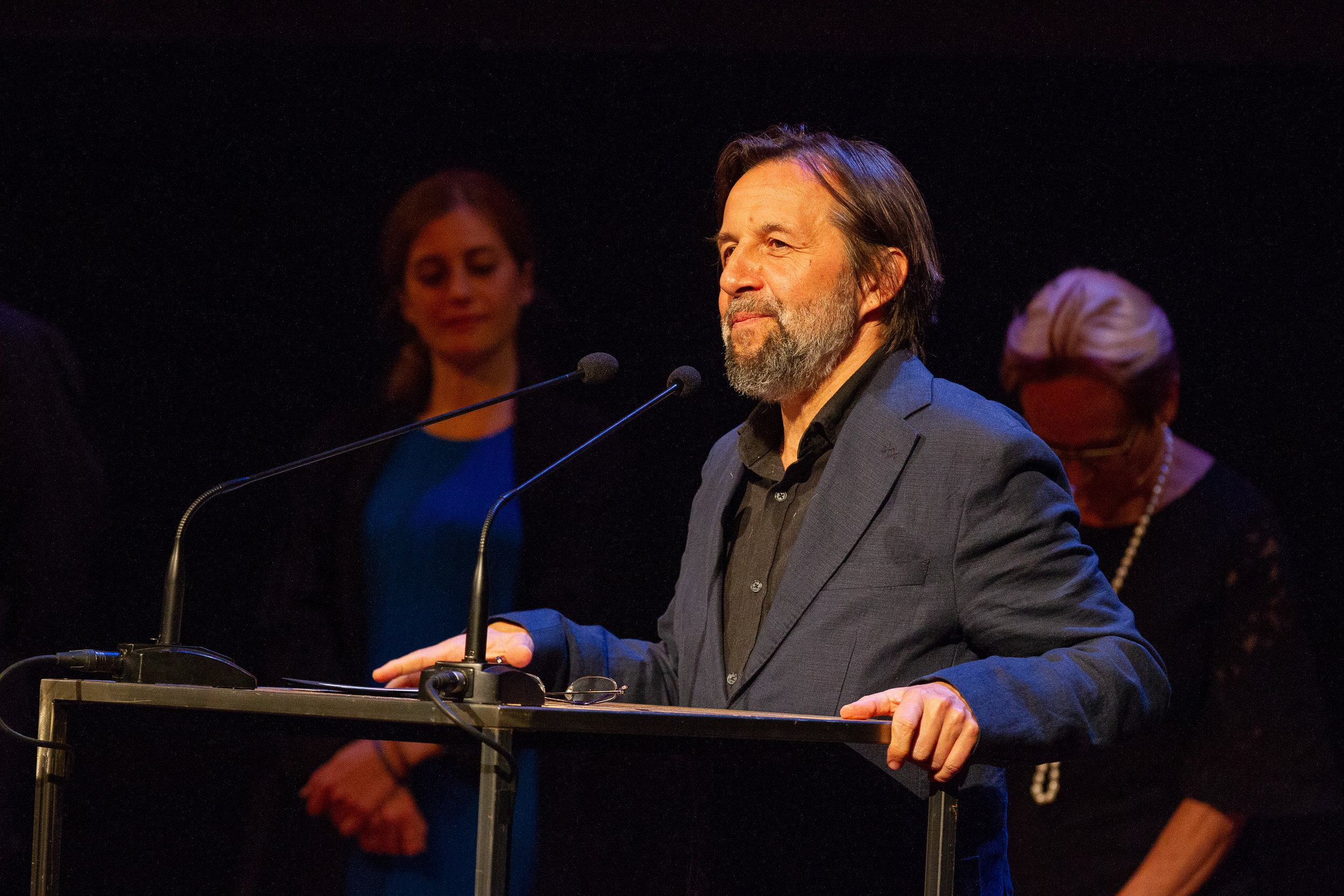
Read in-depth articles in the international press:
Europese Culturele Prijsbekers (ontwerp door Jan Rothuizen), 05/06/2018, Kunstenaar.nl, The Netherlands
Het Bureau Forensic Architecture gebruikt bouwwerken om misdaden op te helderen, 24/05/2018, Volkskrant, The Netherlands
Laurentien vol lof over werk Prinses Margriet, 17/05/2018, Blauw Bloed, the Netherlands.
Koen Van Synghel bespreekt het werk van Forensic Architecture, dat in Amsterdam de Europese cultuurprijs Princess Margriet Award krijgt, 17/05/2018, Podcast Klara.be, Belgium.
Margriet reikt ECF Awards uit, 17/05/2018, De Telegraaf, The Netherlands. (Print version includes a 3/4 page report, online version is an abbreviated piece).
Forensic Architecture and Borderland win European Cultural Foundation prize, 17/05/2018, Apollo Magazine, United Kingdom.
Margriet reikt ECF Awards uit, 16/05/2018, Vorsten, The Netherlands.
Margriet reikt culturele prijzen uit, 16/05/2018, RoyalBlog.nl, The Netherlands.
Koningspaar naar Middelburg en Amsterdam, 16/05/2018, Vorsten, The Netherlands.
Promuovere il cambiamento sociale attraverso la cultura, 15/05/2018, Il Giornale delle Fondazioni, Italy.
Tenth ECF Princess Margriet Award for Culture, 12/05/2018, EFlux, USA.
Prinses Laurentien heeft over het belang van de Prinses Margriet Award in NPO1: Tijd voor Max, 10/05/2018, Interessantoptv.nl, The Netherlands.
TV interview on NPO 1 ‘Tijd vor Max’ with HRH Princess Laurentien (starting at 16:00 minutes into the show), 10/05/2018, The Netherlands.
#Holandia: Orkiestra Klezmerska Teatru Sejneńskiego zaprasza do Amsterdamu na jedyny koncert, 10/05/2018, Polonia.nl, Poland.
Independent research agency Forensic Architecture win another award, 30/04/2018, Itsnicethat.com United Kingdom.
Forensic Architecture has "mixed feelings"about Turner Prize nomination in week of setbacks, 27/04/2018, DeZeen.com, United Kingdom, 3 Novices Europe, and Indigo Interiors Blog, all United Kingdom.
ECF Princess Margriet Award for Culture 2018, 19/04/2018, LirinArt, the Netherlands.
Margriet en Laurentien weer samen op pad, 12/04/2018, MSN News, The Netherlands.
International Award for Polish Cultural Centre, 10/03/2018, Radio Poland, Poland.
ECF reikt tiende Princess Margriet Awards for Culture uit, 08/03/2018, De Dikke Blauwe, The Netherlands.
Forensic Architecture and Borderland to be honoured with top European nod, The Daily Brit, United Kingdom.
Forensic Architecture and Borderland to be honoured with European Cultural Foundation's Award for Culture, Architect’s Datafile UK, and Net Mag Media, United Kingdom.
Jury Report - 2018 ECF Princess Margriet Award for Culture
Their Royal Highnesses and the 2018 laureates. Photo by Xander Remkes.
"On 7 and 8 January 2018 we chose two outstanding laureates. They come from very different parts of Europe and are informed by differing cultural approaches, yet in their work—in addition to their individual excellence—we recognise a shared desire to address the complexity of the past in order to uncover the contours of a more democratic future.
Though vastly different in their methodologies—one uses architectural, aesthetic and scientific technologies to probe crime sites, while the other draws upon the realms of theatre, literature, poetry and music to create spaces of exchange and togetherness—both help redefine the ways that we jointly see, understand and relate to the interconnected world in which we live.
Their art revolves around making sense of the social, political and cultural realities that frame our lives. Yet rather than taking this interconnectedness as a given, they furnish a broader conception of what it means, culturally and politically, to reconfigure the very possibility of a public sphere. Both laureates courageously equip citizens and communities with the power to act and speak together against forgetfulness, the power to reclaim the way in which very local, personal stories—always entangled within the cartography of our global condition—are told.
Forensic Architecture is a research agency based at Goldsmiths, at the University of London, and consisting of an international team of architects, artists, filmmakers, scientists, political theorists and ordinary citizens. Their multidisciplinary practice is unprecedented. They draw on architectural knowledge, but they do not build buildings. Instead, they use advanced imaging techniques to painstakingly rebuild sites where abuses of power have occured: sites of trauma, oppression and injustice. They do this by analysing and recombining an extensive matrix of media and memories. Like archaeologists, they excavate and assemble data that bear witness to the ways in which conflict transforms social, urban, and natural environments.
Thanks to their meticulous investigations, a coherent story emerges from a ceaseless current of media and virtual representations: all facts and facets are combined to create a more complete picture. Often gathered at the request of and together with affected communities and with entities from across society, Forensic Architecture’s findings have served as decisive evidence in a number of legal cases in national and international courts, in citizen tribunals and human rights trials, and have prompted military, parliamentary and United Nations inquiries. ‘Forensics’ stems from the Latin forensis: ‘pertaining to the forum’. True to these etymological roots, the group presents its investigations of cases in various judicial, political and legal forums. Forensic Architecture’s work has also appeared in cultural and artistic venues, redefining aesthetic practice as a way of intensifying the possibilities afforded by what is witnessed and who is witnessing. As such, the work courageously undertakes a ‘counter-forensics’ where communities, survivors and a broad base of civil society actors become part of a collective transformation, sparking an incandescent flare of hope in this ‘post-truth’ era, that ethical, narrative, cartographic and cultural expressions of truth—and resistance to its manipulation—are what matters.
Borderland is both an independent organization, founded in 1990, and a local centre for cultural encounters, creation and reflection: the Centre Borderland of Arts, Cultures and Nations, which was established a year later in 1991. Borderland—Pogranicze in Polish—is based in the Sejny- Suwałki border region of northeast Poland, a rural area far from the country’s big-city museums and tourist destinations. It is an area that has been formed by many ‘borderlanders’—people whose lives show traces of intersecting cultural pathways: Lithuanian, Polish, Jewish, Russian Old-believer, Belarusian, and Roma. An area whose heritage is rich in diversity. Yet repeated political efforts to homogenize this diversity—or to destroy it altogether— have only served to draw attention to ethnic divisions. This fabrication of forgetfulness has led to a troubled legacy of deportation, destruction and decay.
For nearly three decades the foundation has researched, revitalized and nutured a model of community-building informed by diverse cultural imaginings and by the art of working critically with memory. Using a wide range of artistic and cultural vocabularies, the foundation involves the entire community in co-creating exhibitions; in writing, translating, publishing and debating literature; in lively hands-on workshops and ongoing theatre and research projects with local young people. The foundation also has an internationally renowned and intergenerational Klezmer orchestra, bringing back to life the musical tradition of Ashkenazi Jews, and it organizes symposiums on cross-cultural dialogue for scholars and cultural practitioners from around the world. Borderland works over a long period of time to build invisible bridges that can span many generations, languages, world views, professions, life experiences and above all, art. These bridges are composed from a more complicated and accurate story, a collective memory, based on recollections of the past, in which there is room for the best and the worst, for atrocities and liberations, for anguish and joy. Connecting these multiple perspectives, between the past and the future, towards a tangible sense of a culture of solidarity for tomorrow. The Jury were moved by the fact that this is a region in north-east Poland that had a tangible heritage that was destroyed by the war and became an intangible heritage. And thanks to the courageous work of Borderland now the intangible once again ahs become tangible.
Across the fluxes of time, Borderland is an active model of dialogue in the organic process of personal and community development, a model that makes us acutely aware that the modern borderland is not only a distant geography straddling countries. Instead, it connects what national, social, economic and cultural borders are intended to separate. In cities just as much as in rural towns, the Borderland is the space in which different people live together across differences yet in proximity to each other. So rather than allowing borders to continue to divide communities, Borderland cultivates the imagination we need in order to navigate complex and changing paths through the borderlands that we all jointly inhabit. "
Sejny Theater Klezmer Orchestra performance
Video of 2018 ECF PMA laureate Borderland’s ‘Sejny Theater Klezmer Orchestra’ performance at the European Cultural Challenge, May 15.
Read MoreHRH Princess Laurentien's Speech - 2018 ECF Princess Margriet Award for Culture
Opening remarks by HRH Princess Laurentien of the Netherlands at the ECF Princess Margriet Award for Culture ceremony in Amsterdam, 16 May 2018
Read MoreEuropean Cultural Challenge press releases
“Space is an optical device that helps us to make sense of the present”
In this Featured People interview, we talk to Eyal Weizman, Professor of Spatial and Visual Cultures at Goldsmiths University, London, and founder of Forensic Architecture. This international multidisciplinary research group is one of the 2018 laureates for the ECF Princess Margriet Award for Culture.
Read More
